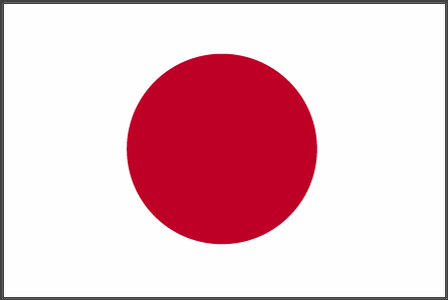It’s ANZAC Day, and I’m in the lovely city of Matsue, Japan, not many miles from Hiroshima, and heading for Nagasaki. Japan has a healthy though ageing population, and many elderly domestic tourists visit this city. I realise that most of them – ie those over 70 – were alive in 1945.
Japan had changed so much since then, yet Japan is a place that manages change slowly. Credit cards are still not widely used, the car does not rule (despite Japan being the car-maker to the world), the trains are cool, and the humble bicycle rules the urban landscape.
About 80 percent of the cars on the road are compact – noticeably smaller than my Honda Civic – and practical for urban living. I cannot recall having seen an SUV anywhere.
The bicycles are simple, leisurely, unisex, with a carry-basket in the front. Almost everyone seems to have one, and they are ridden without helmets in normal street or business clothes on footpaths and on streets. There is not any sense of danger around cycling; quite the obverse of Auckland.
While there are large apartment blocks in the larger cities, they are not nearly as prominent as in China or Korea. Indeed there are also plenty of traditional houses, compact (of course) in the main. We can learn a lot about sustainable urban living from the Japanese.
There is a sense of publicness – of social capital – that clearly influences people’s choices. And that sense doesn’t derive from any single faith. Contemporary Japanese values are an eclectic mix of domestic and foreign influences. While, to western eyes, there may seem to be too much conformity – and there certainly is a sense of nationality – Japanese inventors and designers are clearly among the most creative in the world.
Japan is open to a much more diverse range of ideas about economics; it’s far from stuck in the narrow conformity that neoliberal thought has delivered to intellectual life in New Zealand. And there’s an interesting pragmatism about debt.
Japanese people are debt-averse (hence the slow adoption of credit cards); they are savers by nature. But they lend their private surpluses in substantial part to their own government. Thus the Japanese government is, I understand, the world’s biggest public sector debtor. Many foreigners see this as a problem for Japan, but it’s not, it’s a solution. The cruelest policy the Japanese government could inflict on its people would be to try to run Budget surpluses to reduce its debt. The government debt is simply the flip-side of the country’s private savings.
I hope that Japan is able to stay clear of the geopolitics that can make the world, quite suddenly, a perilous place. Undoubtedly it still has much in its own history to come to terms with. And Japan retains an uncompromising blind spot re its whaling ventures. But as the victim of the very worst calamities that man and nature have devised, we can learn much from Japan’s resilience.
On that note, Japan faced an economic catastrophe in the early 1990s, following its financial excesses in the late 1980s. We in the west still do not appreciate how important the pragmatism that followed – and in the face of massive western advise to adopt neoliberalism – was in preventing what would otherwise have been the biggest economic disaster in the world in the second half of the twentieth century.
I do not know what Barrack Obama and Shinzo Abe have been talking about in these last two days. But let’s hope it’s been about peace, prosperity, sustainability and openness to the challenges that face the world this century.






Obama, US
“peace, prosperity, sustainability and openness”
The talk perhaps – words are cheap, and deceptive.
The US dropped 2 atomic bombs on civilians killing hundreds of thousands instantly and damaging the survivor’s future generations; all completely unnecessarily as the war was all but over bar signing of documents. The legacy of genetic damage remains as does the misery.
When the USA can begin to talk and ACT towards “peace, prosperity, sustainability and openness” withing their own country then others may listen and watch a dramatic change.
Obama is a mouthpiece for the most aggressive and Imperialist force in the world. His mission in Japan is transparent and certainly not about “peace, prosperity, sustainability and openness”.
Abe and Obama?
No, they will have been talking about re-arming Japan, boosting the Okinawa bases, and confronting China.
http://japanfocus.org/events/view/211?utm_source=March+3%2C+2014&utm_campaign=China%27s+Connectivity+Revolution&utm_medium=email
Comments are closed.